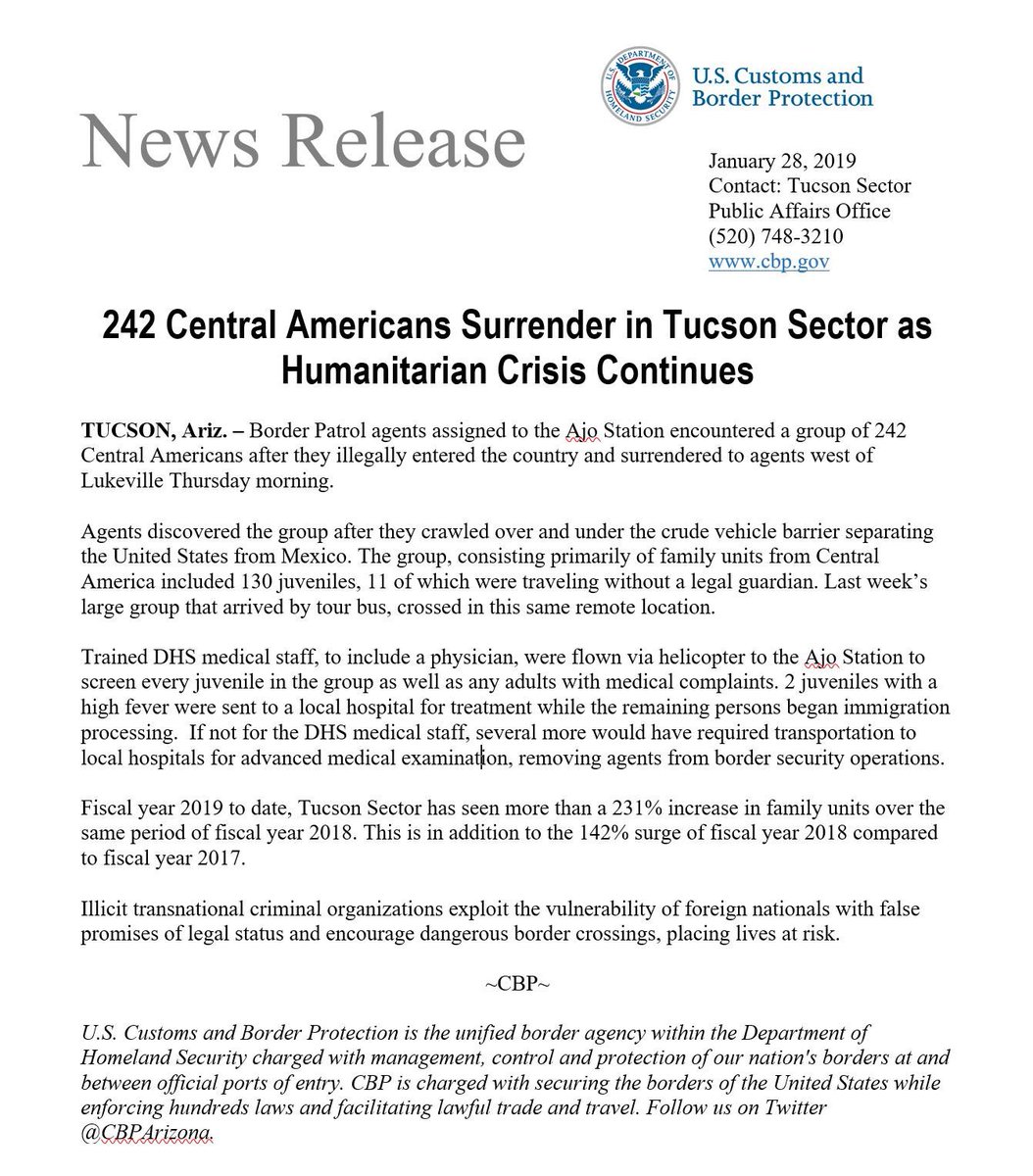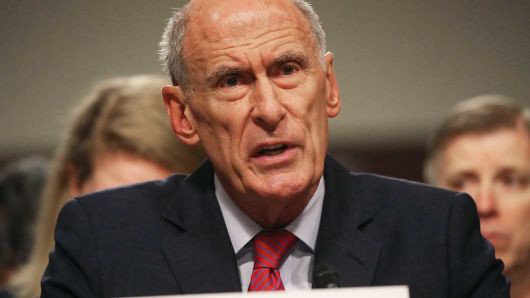Primer:
WASHINGTON (Reuters) – The U.S. military is prepared to protect U.S. personnel and diplomatic facilities in Venezuela if needed, the U.S. admiral in charge of American forces in South America said on Thursday.
“We are prepared to protect U.S. personnel and diplomatic facilities if necessary,” Navy Admiral Craig Faller, the head of U.S. Southern Command, said during a Senate Armed Services Committee hearing.
He did not provide any details on how the U.S. military might respond.
Elliott Abrams, Washington’s special envoy on Venezuela, said the aid effort was being coordinated with Guaido’s team but that the aid would not be forced into Venezuela.
“Let it in, that’s what we’re asking, let it in,” Abrams told reporters at a State Department briefing, calling on members of Venezuela’s armed forces to persuade Maduro to step down or to disobey his orders.
He said the supplies would be delivered to Venezuelans when it was “logistically safe” to do so.
Meanwhile:
Ghazi Nasr Al-Din fundraisers for and with Hezbollah. He also is a player in operational issues which includes a Hizbollah community center and operations office in Venezuela. He speaks Arabic and Spanish. Born in Beirut, Lebanon, he has been on the FBI Most Wanted List for several years.
 Al Din along with Fawzi Kan’an are based in Venezuela and have been since at least 2008.
Al Din along with Fawzi Kan’an are based in Venezuela and have been since at least 2008.
GHAZI NASR AL DIN
Ghazi Nasr al Din is a Venezuela-based Hizballah supporter who has utilized his position as a Venezuelan diplomat and the president of a Caracas-based Shi’a Islamic Center to provide financial support to Hizballah. Nasr al Din served until recently as Charge d’ Affaires at the Venezuelan Embassy in Damascus, Syria, and was subsequently appointed the Director of Political Aspects at the Venezuelan Embassy in Lebanon.
Nasr al Din has counseled Hizballah donors on fundraising efforts and has provided donors with specific information on bank accounts where the donors’ deposits would go directly to Hizballah.
Ghazi Nasr al Din has met with senior Hizballah officials in Lebanon to discuss operational issues, as well as facilitated the travel of Hizballah members to and from Venezuela. In late January 2006, Nasr al Din facilitated the travel of two Hizballah representatives to the Lebanese Parliament to Caracas to solicit donations for Hizballah and to announce the opening of a Hizballah-sponsored community center and office in Venezuela. The previous year, Nasr al Din arranged the travel of Hizballah members to attend a training course in Iran.
AKAs: Haj Ghazi Nasseredine
Ghazi Nassereddine
Gazi Nasseridine
Gazi Nasser El-Din
Ghazil Nasser Al-Din
Haj Ghazzi Nassereddine
Ghassan Attef Salame Nasserddine
Ghassan Nasr El Din Ghassan
Ghazi Nasserddine
Ghazi `Atef Nasraldine
Atef Salameh Nasserdine Ghasan
Hajj Ghazi `Atif Nasr al-Din
Venezuelan Cedula: 18.190.527
Venezuelan Passport: B-0472561
DOB: 13DEC 1962
POB: Lebanon
FAWZI KAN’AN
Fawzi Kan’an is a Venezuela-based Hizballah supporter and a significant provider of financial support to Hizballah. Kan’an has facilitated travel for Hizballah members and sent money raised in Venezuela to Hizballah officials in Lebanon.
Kan’an has met with senior Hizballah officials in Lebanon to discuss operational issues, including possible kidnappings and terrorist attacks. Further, Kan’an has also traveled with other Hizballah members to Iran for training.
| AKAs: | Fazi Canaan
Faouzi Can’an Fouzi Kanan Fauzi Kanaan Fawzi Kan’an Fauzi Ganan Maustaf Fawzi (Faouzi) Kanaan |
| DOB1: | 7 June 1943 |
| DOB 2: | February 1943 |
| DOB3: | l June l943 |
| POB 1: | Lebanon |
| POB 2: | Baalbeck, Lebanon |
| POB 3: | Betechelida, Lebanon |
| Passport no: | 0877677 |
| Nationality: | Venezuelan (Naturalized) |
| Naturalization no.: | 2108, 16 December 1977 |
| Identification no: | V-6.919.272 |
| Residence 1: | Calle 2, Residencias Cosmos, Fifth Floor, Apartment 5D, La Urbina Caracas, Venezuela |
| Residence 2: | Esquina Bucare, Building 703, Second Floor, Apartment 20 Caracas, Venezuela |
BIBLOS TRAVEL AGENCY
Biblos Travel Agency is a Venezuela-based travel agency owned and operated by Fawzi Kan’an, which he has used to courier funds to Lebanon.
| AKAs: | Biblios Travel Biblos Travel CA Biblos Travel, C.A. |
| Location: | Avenida Baralt, Esquina Maderero, Edificio Santa Isabel II, PB, Loc. 1 Caracas, Venezuela |
HILAL TRAVEL AGENCY
Formed in April 2001, Hilal Travel Agency is a Venezuela-based travel agency owned and operated by Fawzi Kan’an.
| AKAs: | Hilal Travel C.A. |
| Address: | Avenida Baralt, Esquina Maderero, Edificio Santa Isabel Caracas, Venezuela |
| Business ID no.: | 80074366 |
Shall we go back to 2011?
A recent New York Times front-page article (December 14, 2011) revealed the extensive and intricate connections between Hezbollah and South American cocaine trafficking. Far from being the passive beneficiaries of drug-trafficking expats and sympathizers, Hezbollah has high-level officials directly involved in the South American cocaine trade and its most violent cartels, including the Mexican gang Los Zetas. The “Party of God’s” increasing foothold in the cocaine trade is facilitated by an enormous Lebanese diaspora. As I wrote in my May 2011 e-note, in 2005, six million Muslims were estimated to inhabit Latin American cities. However, ungoverned areas, primarily in the Amazon regions of Suriname, Guyana, Venezuela, Colombia, Ecuador, Peru, Bolivia, and Brazil, present easily exploitable terrain over which to move people and material. The Free Trade Zones of Iquique, Chile; Maicao, Colombia; and Colón, Panama, can generate undetected financial and logistical support for terrorist groups. Colombia, Bolivia, and Peru offer cocaine as a lucrative source of income. In addition, Cuba and Venezuela have cooperative agreements with Syria, Libya, and Iran.
Some shocking revelations into the global interconnectedness of Latin American governments and Middle Eastern terrorist groups have come from Walid Makled, Venezuela’s latter-day Pablo Escobar, who was arrested on August 19, 2010 in Cúcuta, a town on the Venezuelan-Colombian border. A Venezuelan of Syrian descent known variously as “El Turco” (“The Turk”) or “El Arabe” (“The Arab”), he is allegedly responsible for smuggling 10 tons of cocaine a month into the US and Europe—a full 10 percent of the world’s supply and 60 percent of Europe’s supply. His massive infrastructure and distribution network make this entirely plausible, as well as entirely implausible the Venezuelan government did not know. Makled owned Venezuela’s biggest airline, Aeropostal, huge warehouses in Venezuela’s biggest port, Puerto Cabello, and bought enormous quantities of urea (used in cocaine processing) from a government-owned chemical company.
After his arrest and incarceration in the Colombian prison La Picota, Makled gave numerous interviews to various media outlets. When asked on camera by a Univisión television reporter whether he had any relation to the FARC, he answered: “That is what I would say to the American prosecutor.” Asked directly whether he knew of Hezbollah operations in Venezuela, he answered: “In Venezuela? Of course! That which I understand is that they work in Venezuela. [Hezbollah] make money and all of that money they send to the Middle East.” A prime example of the importance of the Lebanese diaspora in triangulating amongst South American cocaine and Middle Eastern terrorists, is Ayman Joumaa, a Sunni Muslim of the Medellín cartel with deep ties with Shiites in the Hezbollah strongholds of southern Lebanon. His indictment made public on Tuesday “charges him with coordinating shipments of Colombian cocaine to Los Zetas in Mexico for sale in the United States, and laundering the proceeds” (NY Times, Dec. 14, 2011).
The growing routes linking South American cocaine to Middle Eastern terrorists are primarily from Colombia through Venezuela. According to an April 2011 report by the United Nations Office on Drugs and Crime (UNODC) the Bolivarian Republic of Venezuela is the most prominent country of origin for direct cocaine shipments to Europe, with the cocaine coming mainly from Colombia, primarily the FARC and ELN terrorist groups. Shipments to Africa, mostly West Africa, gained in importance between 2004 and 2007, resulting in the emergence of a new key trans-shipment hub: centered on Guinea-Bissau and Guinea, stretching to Cape Verde, The Gambia and Senegal, thus complementing the already existing trafficking hub of the Bight of Benin, which spans from Ghana to Nigeria. As the cocaine is transported through Africa and into Europe, its safe passage is guaranteed (much as it was in Latin America) by terrorist groups—most prominently, Al Qaeda and Hezbollah. The cocaine can also travel from Latin America’s Tri‐Border Area (TBA)—bounded by Puerto Iguazu, Argentina; Ciudad del Este, Paraguay; and Foz do Iguaçu, Brazil—to West Africa (particularly Benin, Gambia and Guinea-Bissau, with its poor governance and vast archipelagos) and then north into Europe through Portugal and Spain or east via Syria and Lebanon.
Hezbollah’s traditional continental home has been the TBA, where a large, active Arab and Muslim community consisting of a Shi’a majority, a Sunni minority, and a small population of Christians who emigrated from Lebanon, Syria, Egypt and the Palestinian territories about 50 years ago. The TBA, South America’s busiest contraband and smuggling center, has long been an ideal breeding ground for terrorist groups, including Islamic Jihad, Hezbollah and Al Qaeda—the latter since 1995 when Osama bin Laden and Khalid Sheikh Mohammad first visited.
Hezbollah is still active in the TBA, according to Argentine officials. They maintain that with Iran’s assistance, Hezbollah carried out a car‐bomb attack on the main building of the Jewish Community Center (AMIA) in Buenos Aires on July 18, 1994, protesting the Israeli‐Jordanian peace agreement that year. Today, one of the masterminds of those attacks, the Iranian citizen and Shia Muslim teacher, Mohsen Rabbani, remains not only at large, but extremely active in recruiting young Brazilians, according to reports in Brazilian magazine Veja. This region, the third in the world for cash transactions (behind Hong Kong and Miami), continues to be an epicenter for the conversion and recruitment of a new generation of terrorists who then train in the Middle East and pursue their activities both there and in the Americas.
According to Lebanon’s drug enforcement chief, Col. Adel Mashmoushi, as cited in The New York Times, a main transportation route for terrorists, cash and drugs was aboard a flight commonly referred to as “Aeroterror,” about which I wrote in my May 2011 e-note for FPRI. According to my own secret sources within the Venezuelan government, the flight had the route Tehran-Damascus-Caracas-Madrid, where it would wait for 15 days, and flew under the direct orders of the Venezuelan Vice-President, according to the captain. The flight would leave Caracas seemingly empty (though now it appears it carried a cargo of cocaine) and returned full of Iranians, who boarded the flight in Damascus, where they arrived by bus from Tehran. The Iranian ambassador in Caracas would then distribute the new arrivals all over Venezuela.smilelaugh

%2Fhttps%3A%2F%2Fwww.thestar.com%2Fcontent%2Fdam%2Fthestar%2Fnews%2Fworld%2Famericas%2F2019%2F02%2F06%2Fthe-latest-venezuelan-man-urges-military-to-let-in-us-aid%2FCOL102-26_2019_175024.jpg&f=1)






